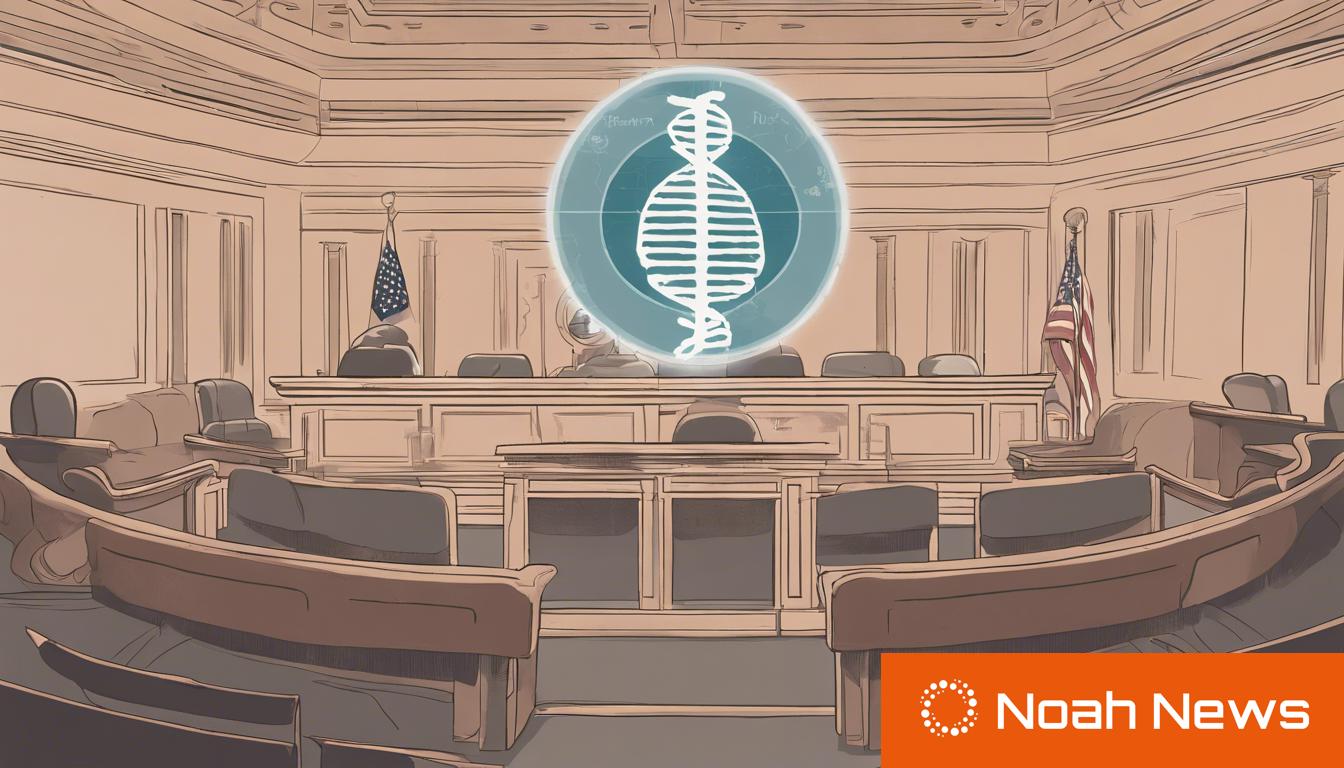
In Vitro Fertilization (IVF): Everything You Need to Know and More
March 25, 2025Alabama Embryos and IVF: What You Need to Know About the Controversy and Beyond
In February 2024, a ruling from the Alabama Supreme Court shook the world of fertility treatments. The court decided that frozen embryos created through in vitro fertilization (IVF) are legally “children” under state law. This decision didn’t just make headlines—it changed lives. IVF clinics in Alabama paused services, leaving families in limbo, and sparked a nationwide debate about embryos, personhood, and reproductive rights. But what does this mean for you, whether you’re dreaming of starting a family, curious about science, or just trying to keep up with the news?
This blog dives deep into the Alabama embryo ruling and its ripple effects on IVF. We’ll uncover the hidden details—like what happens to unused embryos, how this affects people’s hobbies and privacy, and what the latest research says. Unlike other articles, we’re not just scratching the surface. We’ll explore the questions fans of this topic are asking: What’s the emotional toll? How does this shift daily life for IVF patients? And what practical steps can you take if you’re caught in this storm? Let’s break it all down with fresh insights, real stories, and actionable advice.
What Happened in Alabama? The Ruling Explained
The Alabama Supreme Court’s decision came from a lawsuit called LePage v. Mobile Infirmary Clinic. Three couples had their frozen embryos accidentally destroyed at a fertility clinic in Mobile, Alabama. They sued under the state’s Wrongful Death of a Minor Act, a law from 1872 meant to protect unborn children. The court ruled that this law applies to embryos outside the womb—calling them “extrauterine children.” Suddenly, frozen embryos had the same legal rights as a born child.
This wasn’t a small tweak in the law. It flipped the script on IVF, a process millions rely on to build families. Clinics worried they could face lawsuits or even criminal charges for handling embryos the way they always have—like discarding ones that aren’t used. Within days, at least three major IVF providers in Alabama hit pause on treatments, leaving patients scrambling.
Why It Matters to Everyday People
You might think, “This is just legal stuff—how does it affect me?” Imagine you’re a couple who’s spent years saving up for IVF, or maybe you’re a single person banking embryos for the future. Now, your plans are on hold. Or picture this: you’re a clinic worker who loves helping people become parents, but now your job feels like a legal minefield. This ruling touches real lives—hobbies like scrapbooking baby dreams, private moments of hope, and even the quiet stress of waiting for good news.

IVF 101: How It Works and Why Embryos Are a Big Deal
To get why this ruling is such a game-changer, let’s walk through IVF basics. In vitro fertilization is like a science-powered shortcut to pregnancy. Here’s how it goes:
- Stimulation: Doctors give a woman hormones to produce multiple eggs (instead of the usual one per month).
- Egg Retrieval: Those eggs are collected in a quick procedure.
- Fertilization: In a lab, eggs meet sperm to create embryos—tiny clusters of cells.
- Embryo Growth: Embryos grow for 5-6 days until they’re at the “blastocyst” stage, ready for transfer or freezing.
- Transfer or Freeze: One or two embryos go into the uterus to (hopefully) become a pregnancy. Extra ones get frozen in liquid nitrogen for later.
The Embryo Question
IVF often makes more embryos than a family needs. Why? Not every embryo survives the process or is healthy enough to implant. Dr. Eve Feinberg, a fertility expert at Northwestern Medicine, says, “Only about 55% of fertilized eggs make it to the blastocyst stage, even at top clinics.” That’s just biology—not every embryo is destined to become a baby. But now, in Alabama, every embryo counts as a “child,” whether it’s in a womb or a freezer.
Fun Fact Fans Love
Did you know some IVF patients name their embryos? It’s a private hobby for many—turning science into something personal. Think “Embry McEmbryo” or “Frosty Junior.” It’s a quirky way to cope with the rollercoaster of fertility treatments.
The Emotional Side: How the Ruling Hits Home
Beyond the courtroom, this decision messes with people’s hearts. IVF is already a wild ride—hope, disappointment, and a whole lot of waiting. Now, add legal chaos to the mix.
Real Stories, Real Feelings
Take Sarah, a 34-year-old teacher from Birmingham, Alabama (we’ve changed her name for privacy). She and her husband were mid-IVF cycle when their clinic shut down. “We’d been trying for three years,” she says. “I had this little journal where I’d sketch nursery ideas—my secret hobby. Now it’s just sitting there, blank.” For Sarah, IVF wasn’t just medical—it was her lifeline to a dream.
Then there’s Mike, a single guy in Mobile who froze embryos with a donor egg. “I love hiking and wanted a kid to take on trails someday,” he shares. “Now I’m wondering if those embryos are stuck in limbo forever. It’s like my future’s frozen too.”
The Privacy Angle
Fans of true-crime podcasts or medical dramas might wonder: what happens to all those personal details? IVF involves sharing your most private hopes with doctors—your struggles, your family plans, even your DNA. With embryos now “children,” could clinics face pressure to report what happens to them? It’s a privacy twist no one saw coming.
The Science: Are Embryos Really “Children”?
The Alabama ruling calls embryos “children,” but science sees it differently. Let’s break it down.
What’s an Embryo, Anyway?
An embryo is a fertilized egg in its early stages—think 5-9 days old in IVF. It’s a ball of about 100 cells, smaller than a pinhead. It has the potential to become a baby, but it’s not there yet. Sean Tipton from the American Society for Reproductive Medicine puts it bluntly: “A fertilized egg in a freezer isn’t the same as a baby. Anyone with a microscope can see that.”
Research Reality
Studies back this up. A 2019 survey of 703 fertility doctors across 65 countries found most don’t treat embryos like people—they’re cells with possibility. In the lab, about 45% of embryos “die” naturally before they’re ready for transfer. That’s not murder; it’s biology. The Alabama ruling ignores this, putting doctors in a tough spot.
Practical Tip
If you’re curious about embryo science, check out free online courses from platforms like Coursera. They’re a cool hobby for science buffs and can help you understand what’s really happening in those petri dishes.
How This Changes IVF in Alabama (and Maybe Beyond)
The ruling didn’t just pause IVF—it reshaped it. Here’s what’s happening on the ground.
Clinics in Crisis
After the decision, clinics like the University of Alabama at Birmingham halted treatments. Why? Fear of lawsuits. If an embryo doesn’t survive thawing or isn’t used, could a doctor be sued for “wrongful death”? It’s a risk no one wants to take.
Patients’ New Reality
For patients, it’s a logistical nightmare:
- Canceled Cycles: Some were mid-treatment when clinics closed.
- Travel Plans: Many are now driving to Georgia or Tennessee for IVF, racking up costs.
- Storage Stress: What happens to frozen embryos? Alabama passed a quick law (SB159) in March 2024 to protect IVF providers from liability, but it doesn’t solve the “personhood” issue. Embryos might need to be stored forever—or shipped out of state.
A Hobby Twist
Here’s something fans might not know: some IVF patients turn embryo storage into a creative outlet. They track their “frosties” with apps or even knit tiny hats as a hopeful joke. Now, that lighthearted ritual feels heavier.
The Legal Fallout: What’s Next?
The Alabama ruling isn’t the end—it’s the start of a bigger fight. Let’s look at the possibilities.
Alabama’s Response
After clinics shut down, the state legislature acted fast with SB159, shielding IVF doctors from prosecution. It worked—clinics reopened by mid-2024. But the law’s a Band-Aid. It doesn’t say embryos aren’t children, so the core issue lingers.
Could This Spread?
Other states are watching. Louisiana already calls embryos “juridical persons” since 1986, banning their destruction. After Alabama’s move, 13 states proposed similar “personhood” laws by early 2025, says the National Infertility Association. If they pass, IVF could get trickier nationwide.
Your Move
Worried about your state? Look up local laws on sites like resolve.org. It’s a practical step to stay ahead—and a smart hobby for anyone into civics.
The Hidden Costs: Money, Time, and Dreams
IVF’s already pricey—$12,000-$20,000 per cycle, per the CDC. The Alabama ruling adds new layers.
Financial Hits
- Higher Fees: Clinics might charge more to cover legal risks.
- Travel Costs: Out-of-state trips mean gas, hotels, and lost workdays.
- Storage Fees: Keeping embryos frozen costs $500-$1,000 a year. If you can’t discard them, that’s forever money.
Time Suck
A typical IVF cycle takes 2.5 weeks. Now, add delays from clinic closures or moving embryos. For people like Sarah, it’s not just time—it’s missed chances at parenthood.
Dream Crushers
Hobbies like planning a baby shower or picking names get put on hold. “I used to browse baby gear online for fun,” Mike says. “Now it feels pointless.”
Latest Research: What’s New in IVF?
Science isn’t standing still. Here’s what’s fresh in 2025—and how it ties to Alabama.
Single Embryo Transfers
A 2023 study in Obstetrics & Gynecology found single embryo transfers (SET) cut multiple births (twins, triplets) without dropping success rates—43% live births with SET vs. 44% with two embryos. In Alabama, SET could reduce extra embryos, dodging legal headaches.
Cryopreservation Advances
New freezing tech, like vitrification, boosts embryo survival rates to 95%, per a 2024 report from the European Society of Human Reproduction. Better freezing means fewer losses—good news for clinics under scrutiny.
Practical Suggestion
Ask your doctor about SET if you’re starting IVF. It’s a science-backed way to keep things simple and safe.
What Fans Want to Know: Unanswered Questions
Digging into online chatter, here’s what people are buzzing about—and what most articles miss.
“What Happens to Unused Embryos?”
Normally, you can donate them to science, another couple, or discard them. In Alabama, discarding’s off the table. Donation’s an option, but it’s rare—only 7% of patients choose it, says a 2019 study. Most just pay to freeze them indefinitely.
“Can I Move My Embryos?”
Yes! Shipping embryos to another state costs $300-$800, per fertility logistics firms. It’s a hassle, but it keeps your options open.
“Does This Affect Egg Freezing?”
Nope—eggs aren’t fertilized, so they’re not “children” under the ruling. It’s a safer bet for now.
Practical Tips: Navigating IVF in Alabama Today
If you’re in Alabama or a similar state, here’s how to keep your IVF journey on track.
✔️ Do This
- Research Clinics: Find ones still operating or near state lines (like Atlanta).
- Ask About SET: Fewer embryos, fewer worries.
- Budget Extra: Plan for travel or storage costs.
- Join Support Groups: Online communities on Reddit or Resolve offer tips and hope.
❌ Avoid This
- Don’t Panic: The situation’s fluid—stay informed, not stressed.
- Don’t Delay: If you’re mid-cycle elsewhere, finish it before moving embryos.
- Don’t Assume: Check your clinic’s status weekly—things change fast.
Step-by-Step Guide
- Call your clinic for their latest policy.
- Get a cost estimate for moving embryos if needed.
- Talk to your doctor about adjusting your plan (e.g., fewer embryos).
- Freeze eggs instead if you’re early in the process.
The Bigger Picture: Ethics, Religion, and You
This isn’t just about law or science—it’s personal. The Alabama ruling leans on faith, with Chief Justice Tom Parker quoting the Bible: “Human life cannot be wrongfully destroyed without incurring the wrath of a holy God.” That’s heavy stuff.
Different Views
- Catholic Church: Against IVF, says it’s unnatural.
- Protestants: Mixed—many evangelicals support it, per a 2024 poll by Kellyanne Conway’s firm.
- Science: Embryos aren’t people until they implant and grow.
Your Take
What do you think? Is an embryo a child at day one, or only after a heartbeat? It’s a question shaping laws—and lives.
Interactive Wrap-Up: Let’s Talk!
Wow, we’ve covered a lot—legal twists, science facts, and real struggles. But this story’s still unfolding, and you’re part of it. What’s on your mind?
- Question Time: Do you think embryos should have rights? Why or why not?
- Share Your Story: Have you done IVF? How’s this news hitting you?
- Hobby Challenge: Try naming an imaginary embryo—keep it fun!
Drop your thoughts below. Let’s keep this convo going—your voice matters!
